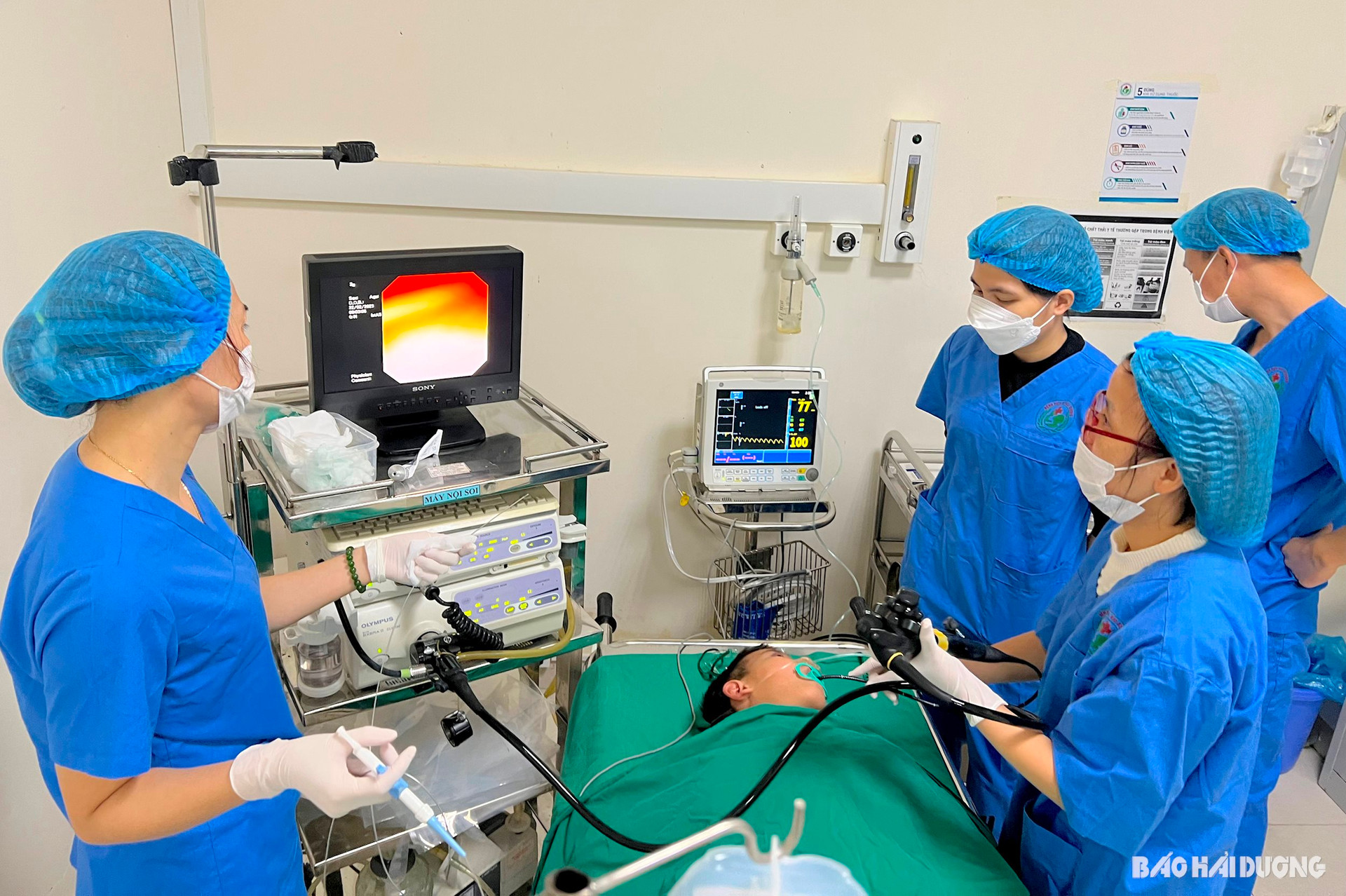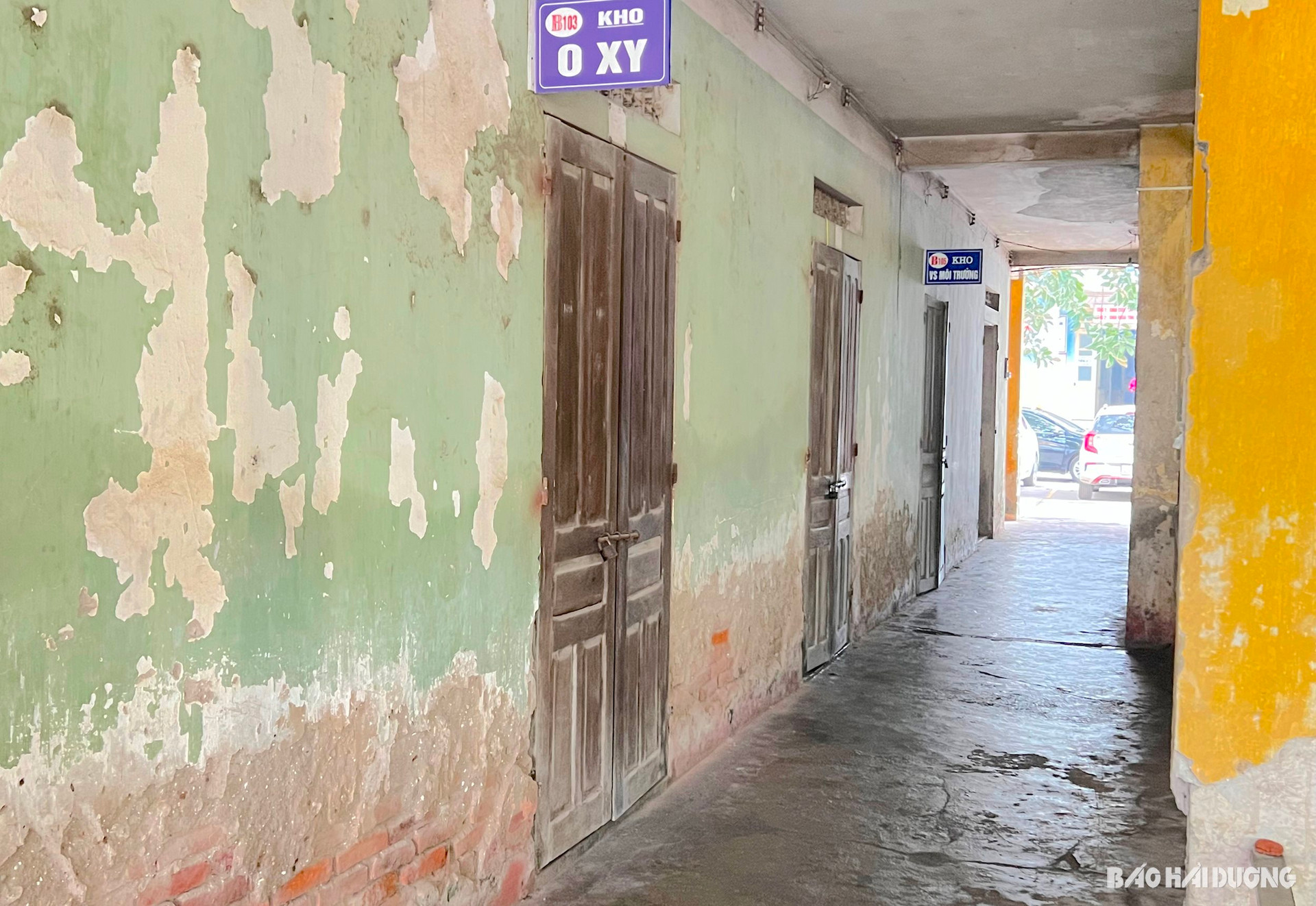In preparation for the meeting and dialogue between provincial leaders and health workers, thousands of opinions and recommendations from officials and employees of the sector were sent to the Organizing Committee with many wishes and concerns related to personnel issues, drug bidding, etc.

According to the report of the Provincial People's Committee, there were 2,013 opinions and recommendations (264 opinions from groups and 1,749 opinions from individuals) sent to the provincial leaders for consideration and direction. Through synthesis, there were 45 opinions and recommendations revolving around 5 major groups of issues.
Nearly 47% of the recommendations are related to the field of organization and personnel.
The field of organization and staff has 21/45 opinions (accounting for 46.6%). The content that most groups and individuals are interested in is the proposal for the province to maintain the model of the Department of Health directly managing the District Health Center. 124 groups and 228 individuals in most District Health Centers and some provincial hospitals believe that this is necessary because it will create favorable conditions for professional direction, mobilization of human resources, equipment, medicine, medical supplies, and unified professional support from top to bottom and between units in emergency situations.
Another content related to the organization that also received the attention of hundreds of individuals was the proposal that the District People's Committee should not comprehensively manage the Medical Center. It is necessary to separate the current District Medical Center into two units: the Medical Center and the General Hospital. The District Medical Center (managed by the District People's Committee) is in charge of prevention, food safety, population and medical stations. The District General Hospital (managed by the Department of Health) is in charge of medical examination and treatment, which will facilitate the direction and professional coordination between levels.
Regarding personnel work, 8 groups and 194 individuals proposed that the province have appropriate remuneration policies to attract and retain high-quality human resources, especially doctors in the field of prevention, commune-level health stations, and dangerous and toxic professions such as tuberculosis, leprosy, psychiatry, emergency resuscitation, forensics and some other special professions. The province's remuneration policies and regimes are not attractive enough, making recruitment difficult while many people have resigned.
124 groups and individuals requested the province to supplement the missing staff at commune-level health stations and not to reduce the staff of health officials. Many officials working in population work requested to consider increasing the occupational allowance from 30% to 40%. Hundreds of other health workers want the province to have a support policy to increase the on-duty and overtime pay. Currently, the normal on-duty pay at the district health center is 48,750 VND/day, while at the health station it is only 18,750 VND/day...
Concerns about bidding and facilities

Currently, the procurement of equipment, drugs, and medical supplies for medical examination and treatment in many units is still facing difficulties due to procedures and waiting for approval at many levels which takes a long time. Bidding for drug supply is not timely, there are many shortcomings, affecting medical examination and treatment.
Many opinions from groups and individuals recommended that the Department of Health take the lead in centralized bidding for drugs, medical supplies, and biological products instead of decentralizing bidding to medical facilities as in the past year.
More than 100 opinions from groups and individuals reflected that the facilities at some commune-level health stations have been used for a long time and are seriously degraded. It is recommended that the province pay attention to investing in upgrading, and at the same time equipping and supplementing essential equipment to serve professional work. Currently, districts, towns and cities in the province have not been equipped with machinery, equipment and means for food testing.
In terms of expertise, many opinions suggested that the Department of Health advise the province to soon issue medical examination and treatment prices in the direction of calculating correctly and fully costs in accordance with market prices. Currently, medical service prices have not been calculated correctly and fully, especially the medical examination and treatment service prices for patients without health insurance cards issued from 2019 to present have not changed. Meanwhile, other costs are increasing.
Leaders of many provincial hospitals that are implementing financial autonomy have requested the provincial budget to increase support for repairing and maintaining facilities, purchasing vehicles, machinery, and medical equipment for medical examination and treatment, and training to improve professional qualifications. From July 1, 2024, the new salary regime for health workers will be implemented, making it more difficult to balance operating costs for financially autonomous units. The province needs to recommend the Government and the Ministry of Health to soon issue medical service prices based on correct and sufficient calculation of constituent elements to help the health sector ensure good implementation of people's health care.
Many opinions suggested that the province should have clear mechanisms, policies and regulations to carry out the work of attracting socialization into the health sector. Some private health facilities proposed that the province allow the use of commercial service land to open clinics, and participate in health insurance examination and treatment...
The dialogue conference between Hai Duong provincial leaders and health workers is scheduled to be held at the Xu Dong Cultural Center (Thanh Nien Street, Hai Duong City) from 8:00 a.m. on May 15. It is expected that about 800 delegates will attend the conference.